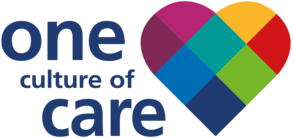A teenager who was among the first babies to have newborn hearing screening has returned to the unit at CRH to celebrate the 15th anniversary of the team.
Phoebe Suthers, 14, from Elland, now a county standard junior tennis player with medals in the sport, needed cochlear implants fitted after the screening - carried out when she was just a few hours old -detected a defect in her hearing.
Our senior screener Nichola Lister, a former nursery nurse and air stewardess joined the team when it was set up and she carried out Phoebe's screening in those early months of the pilot.
Nichola, said: "Phoebe was one of the first babies picked up by the screening programme to have a severe hearing loss. I screened her when she was born and referred her on for further investigation to audiology. The severity of her hearing loss meant that hearing aids were of no benefit so the family decided to have her fitted with an implant. Phoebe has gone onto be able to hear and has done remarkably well, with her tennis achievements and generally leading an absolutely normal life and that is great ."
Phoebe's mum Joanne, said: "Phoebe is just like any other 14-year-old. I would say to any parent learning there maybe a defect not to panic as early detection means a child can go on to lead a normal life just ike Phoebe has."
Phoebe now has her sights on her GCSEs and a Sports Science degree. She said: "The noises I hear sound slightly different to how they sound to a hearing person but that is the only difference."
Before newborn screening the only hearing checkup was at a few months old where a health visitor shook a rattle to see if a baby responded. T
The screening works by inserting an earpiece into a new-born baby's ear (as early as a few hours after a birth) and sending a clicking noise into the cochlear. If this is picked up by a response in the hair cells then the hearing is fine. If not, then further tests and treatment may be needed. About 1 in every 900 babies tested have hearing loss and 1 in every 100 babies who have spent at least 48 hours in a special care unit.
The screening started at CHFT in 2002 when we were a pilot site for NHS England and since then 90,000 babies have been tested by our team. Screening was rolled out nationally in 2005.


